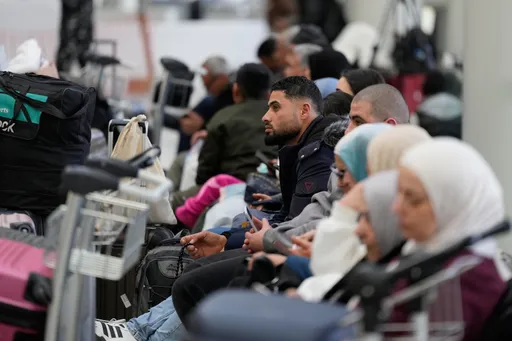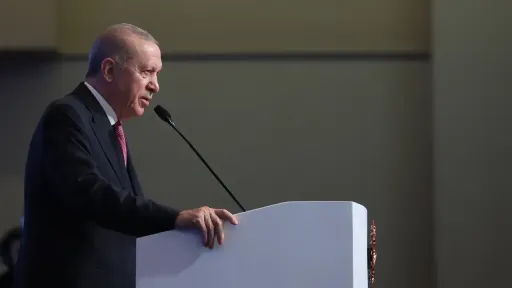By Brian Okoth
Bob Marley’s influence continues to ooze from his grave 42 years after he died.
On Facebook, a company founded many years after his death, the legendary Jamaican artiste has a following of 67.1 million people.
Only four out of 54 African countries have a higher population than that, according to worldometers real-time population index – Nigeria (221.7 million), Ethiopia (123.6 million), Egypt (108.1 million) and the Democratic Republic of Congo (98 million).
On Twitter, the late musician also enjoys a decent following of 1.4 million people, and 7.2 million on Instagram.
The pages are managed by a team called the Bob Marley fan community which posts regularly – perhaps to keep the musician’s already rich legacy fresh every day.
Journalist Nzau Musau, the Intake Editor of Kenya’s oldest news organisation The Standard, says Marley’s legacy has been durable because his life and music instill hope.
“Bob's life, story and music, is the story of hope, resilience and triumph. Look at his background... poor, dejected, rejected but through sheer hard work, focus, and belief in providence, he beats all that to become the world's first reggae superstar,” Musau, a big fan of the Jamaican, told TRT Afrika.
“It's also the tragic story of the vagaries of musical success, and everything that could go bad with fame, and fanatical following. In the words of his mentor, Lee Scratch Perry, 'I love Bob so much, it's a shame',” he added.
The secret to Marley’s posthumous durability, according to Musau, is his ability to “blend reason and fanaticism to lyrics", and that "makes it beautiful”.
“Once you start paying attention to Bob's lyrics, you are hooked,” he said.
Despite enjoying massive support in Africa, Marley’s first trip to the continent came in December 1978.
Expectedly, he made his first stop to Africa in Addis Ababa, Ethiopia – the home of Haile Selassie, who is regarded by Rastafarians as the god of the black race.
The Rastafarians believe that the world’s supreme overseer, God, is black.
During his tour to Addis, Marley stayed at Shashamane, a communal settlement that had been donated to Rastafarians by the emperor, Haile Selassie.
In Marley’s biography, written by Stephen Davis, the reggae superstar once said: “I know that his imperial majesty, Emperor Haile Selassie of Ethiopia is the almighty… I don’t see how much more reveal our people want.”
The musician’s widow, Rita, was quoted by The Guardian saying that Marley’s life was “about Africa, and not Jamaica”.
According to Rita, “Ethiopia is Marley’s spiritual resting place”. Marley died at the age of 36 on May 11, 1981. He had melanoma, a form of skin cancer.
He had been taken to the Jackson Memorial Hospital in Miami, Florida, the United States of America, where he died during treatment.
To maintain their father’s connection with Ethiopia, Marley’s sons, including Damian, have often visited the African nation, performing in Addis Ababa on several occasions.
In his maiden trip to Africa in December 1978, Marley made a brief stop in Kenya while heading to the neighbouring Ethiopia.
Zimbabwe connection
Zimbabwe and Gabon were the only other African countries that Marley set foot in.
So revered was he in Zimbabwe that when the country attained independence on April 18, 1980, he was the only foreign entertainer invited to perform during the Independence Day celebrations in the capital Harare.
Marley, who was fascinated by Zimbabwe’s liberation, even composed a song in honour of the country.
To show how eager he was for Zimbabwe’s independence, he paid his own air ticket, hired a public address and went to the African nation despite the move being opposed by his management.
Zimbabweans were so thrilled by Marley’s presence that police were forced to hurl teargas to stop the chaotic attempts to gain access into the Rufaro Stadium.
To appease those who had been denied access, the following day – April 19, 1980 – Marley performed to an audience of more than 100,000 people.
President’s daughter
His ties with Gabon were interesting. It has widely been reported that Marley fell in love with the daughter of Gabon’s second president, Omar Bongo.
Pascaline Bongo was a 23-year-old college student in the United States in the late 1970s, when she met Marley, who was in the country for a concert.
Pascaline had attended the musician’s show in Los Angeles, and the young woman caught the artiste’s eye. The two would keep in touch, prompting Pascaline to invite Marley to perform in her native Gabon.
The musician, subsequently, performed at the Gymnase Omnisport Bongo in Libreville on January 4 and 6, 1980.
In a book titled ‘Bob Marley and the Dictator's Daughter’, French journalist Anne-Sophie Jahn quotes Pascaline as saying that she and Marley enjoyed a “passionate but almost impossible love affair” because of their different personalities and backgrounds.
The two, nonetheless, kept their love alive until Marley's death.
The Jamaican artiste, whose birth name is Robert Nesta Marley, would have celebrated his 78th birthday on February 6, 2023.
Largely successful in music, Marley received The United Nations Peace Medal of the Third World, was inducted into the Rock and Roll Hall of Fame in 1994; and in 2001, was awarded a Lifetime Achievement Award at the Grammys.
His famous songs include ‘No Woman No Cry’, ‘Redemption Song’, ‘Satisfy My Soul’, ‘Stir It Up’ and ‘One Love’.
To date, Marley, arguably, remains as the greatest reggae musician to have ever lived – even in his grave.























